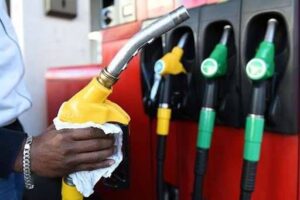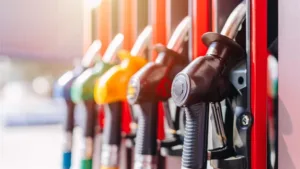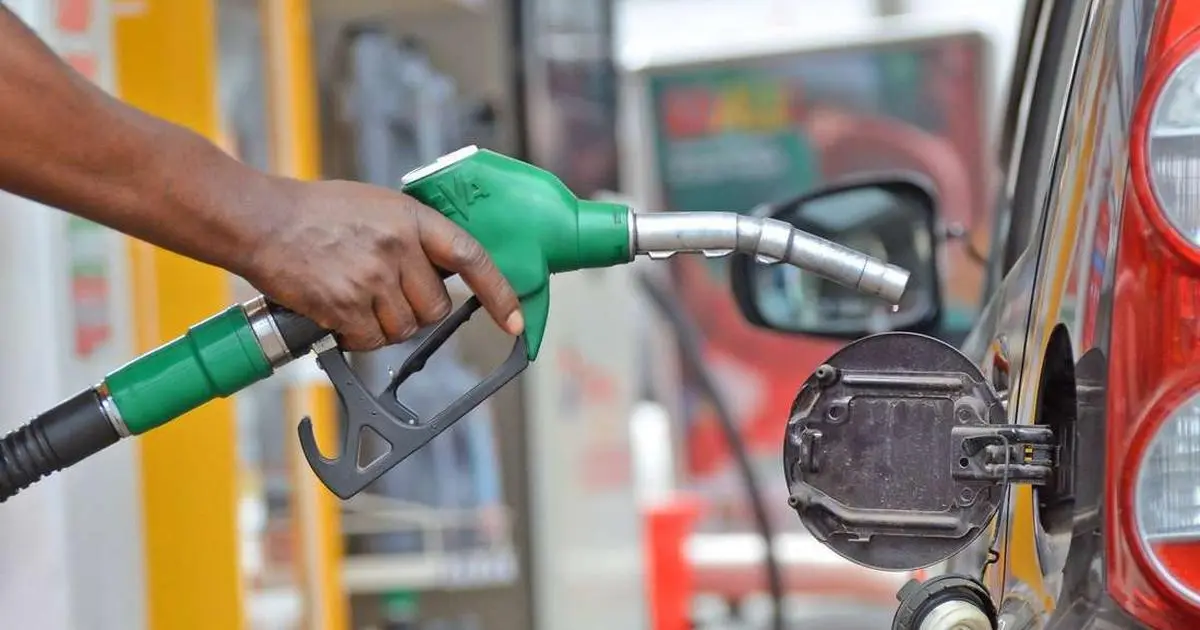Fuel prices across Ghana have begun to adjust downward, bringing some relief to consumers and businesses grappling with high cost pressures. According to domestic oil marketing companies (OMCs), petrol is now being sold at around GH¢12.77 per litre, while diesel is priced at approximately GH¢12.97 per litre. This marks a noticeable decline from recent peaks when diesel rates exceeded GH¢14 per litre.
Industry insiders attribute the reduction to a combination of favourable movements in the global market and a modest strengthening of the cedi in recent weeks. A stronger local currency reduces the cost of importing petroleum products, while easing international crude benchmarks have given producers some leeway to adjust margins. For example, Star Oil Ghana confirmed the revised price on X, posting: “Super: 12.77 – Diesel: 12.97 effective 20th October 2025 at 8:00 AM.”
While the drop is welcome, transport operators and consumers remain cautious. The fuel bill remains a significant component of living and operating costs in Ghana, and even a moderate decrease is unlikely to dramatically ease the burden without broader cost containment. Many drivers, especially commercial ones, still point out that fare levels and logistics costs remain elevated. Analysts say that while this adjustment could slightly ease inflationary pressures—particularly in fuel-intensive sectors like transport and manufacturing—its full benefit depends on how long the lower price window holds and whether downstream levies and taxes adjust in tandem.

There are also questions around consistency in pricing across regions and stations. Although some major OMCs have updated their prices, others are yet to reflect the changes, and there is still a risk of uneven pass-through. The National Petroleum Authority (NPA) has said it is monitoring the situation closely and will ensure compliance with the official pricing formula and regular reporting by OMCs.
For households, an average price of GH¢12.77 per litre of petrol may still feel steep compared to income levels, but the decline is meaningful—especially for everyday commuters and businesses that rely on fuel. At that level, a 40-litre tank costs about GH¢511, which remains a substantial outlay but is lower than previous rounds when similar volumes exceeded GH¢550.
Experts caution, however, that consumers should not assume steady declines ahead. They note several risk factors that could reverse gains: renewed geopolitical tensions, supply disruptions, or a weakening of the cedi. Ghana remains exposed to external volatility given its dependence on imports of refined petroleum products and the sensitivity of pricing to global benchmarks and exchange rate swings. A single dramatic swing in the US dollar-cedi rate or a crude spike could quickly undo recent reductions.
Transport owners are lobbying for further cuts and more predictable fuel pricing, which they say could help stabilise fares and logistics costs. They note that falling fuel prices can have a multiplier effect: lower transport costs reduce the cost of goods, which in turn eases inflation. Some economists suggest that if the price remains around this level for several months, it could contribute to a drop in inflation of 0.2-0.3 percentage points given the weight of transport in the consumer basket.

In the background, debates continue about the structure of Ghana’s fuel pricing mechanism. Observers argue that greater transparency around how global product prices, the exchange rate, taxes, and levies are aggregated would help consumers understand and anticipate changes. A few industry players also call for more frequent pricing windows or an automatic adjustment formula to reduce delays between global price moves and local pass-through.
If sustained, the current drop in fuel prices could be positive news for several sectors. Manufacturing, which uses diesel-powered generators and logistics services, may see some margin relief. For transport-intensive businesses and informal traders, even a modest fuel cost reduction can improve profitability or reduce fare burdens on consumers. However, these gains depend on how quickly OMCs adjust and whether other cost inputs (such as electricity or raw materials) follow suit.
In short, Ghana’s fuel price drop to GH¢12.77 for petrol and GH¢12.97 for diesel provides a welcome relief signal, though it is modest and conditional. For this reduction to translate into broader economic and consumer benefit, stability is key, both in global markets and the exchange rate, and in how quickly and uniformly domestic companies react. The NPA’s oversight role, transparent communication, and timely adjustments will all be crucial if Ghana is to translate this moment of relief into lasting cost-of-living improvements.
Fuel prices expected to drop marginally across Ghana – Chamber of Oil Marketing Companies

